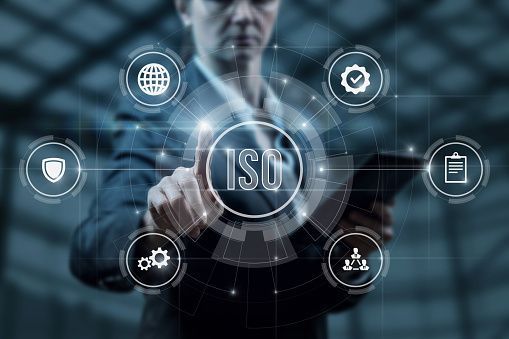Senior Management's Crucial Role in ISO Standards:
A Journey to Continuous Improvement
The pursuit of excellence and the commitment to best practices have become paramount for organizations across various industries. ISO standards, encompassing quality, environment, health and safety, information security, and business continuity, offer a structured framework to achieve these objectives. Yet, what truly distinguishes organizations that thrive in their ISO certifications is senior management's unwavering commitment to these standards. This commitment sets the tone for the entire organization and lays the foundation for a journey of continuous improvement, rather than treating ISO certification as the destination.
A Guiding Hand: Senior Management's Role in ISO Standards
Senior management, including executives, directors, and top leadership, plays a pivotal role in shaping an organization's approach to ISO standards. Their commitment not only provides the necessary resources but also fosters a culture that values quality, environmental responsibility, safety, information security, and business continuity. Here's why their involvement is crucial:
- Leadership and Commitment:
- When senior management champions ISO standards, it signals to the entire organization that compliance is not merely a checkbox but a strategic imperative. Their leadership and commitment create a culture where excellence is celebrated and rewarded.
- Strategic Alignment:
- ISO standards can be tailored to align with an organization's strategic goals. Senior management ensures that the organization's objectives are seamlessly integrated into ISO compliance, reinforcing a purpose-driven approach.
- Resource Allocation:
- Senior management is responsible for allocating the necessary resources, be it financial, human, or technological, to support ISO implementation effectively. Their involvement ensures that the organization has the means to succeed.
- Continuous Improvement:
- ISO standards place a heavy emphasis on continuous improvement. Senior management's engagement is vital in nurturing a culture where employees are encouraged to identify areas for growth and contribute to the organization's betterment.
The Journey to Continuous Improvement
Achieving ISO certification is a milestone worth celebrating, but it's essential to recognize that it is not the destination. Instead, it marks the beginning of a journey towards continuous improvement. The journey unfolds in various phases, each offering unique opportunities for growth:
- Implementation:
- This stage involves adopting the ISO standards and aligning organizational processes with the requirements. Senior management must ensure that the implementation is well-executed and that all employees are aware of their roles and responsibilities.
- Monitoring and Evaluation:
- Senior management must oversee the ongoing monitoring of processes and evaluate their performance against ISO standards. This step involves measuring key performance indicators, identifying areas for improvement, and making data-driven decisions.
- Feedback and Adaptation:
- Regular feedback from employees, stakeholders, and customers is invaluable. Senior management should encourage an open feedback loop to make necessary adaptations and refinements in response to changing circumstances.
- Cultural Transformation:
- The journey should be accompanied by a cultural transformation. Senior management's commitment to excellence should permeate the organization, creating a work environment where quality, safety, and security are embedded in the organizational DNA.
Long-Term Success Through Continuous Improvement
The notion that ISO certification is a one-time achievement is a misconception. True success comes from embracing ISO standards as a catalyst for long-term growth. Senior management's commitment is instrumental in ensuring that ISO standards become a driving force for ongoing improvement and innovation.
By viewing ISO certification as part of a continuous improvement journey, organizations set themselves up for long-term success. They adapt to changing market conditions, exceed customer expectations, and stay ahead of the competition. In an era where excellence is not a destination but a continuous pursuit, senior management's leadership in this journey is a critical factor in determining an organization's success.



